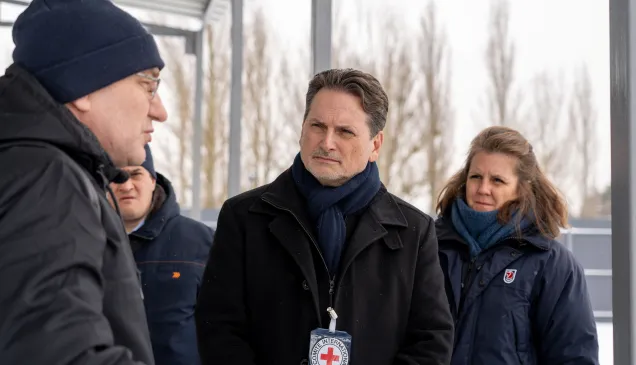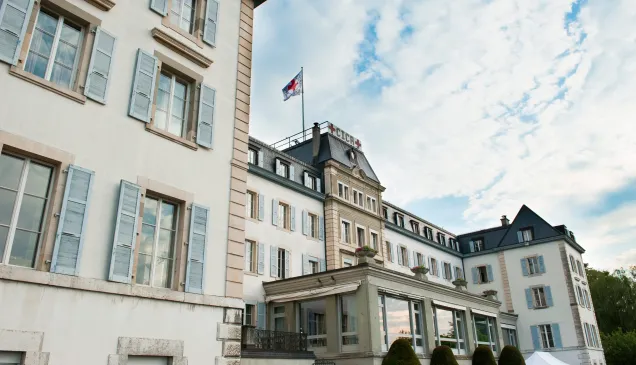Ukraine: A normal tragedy
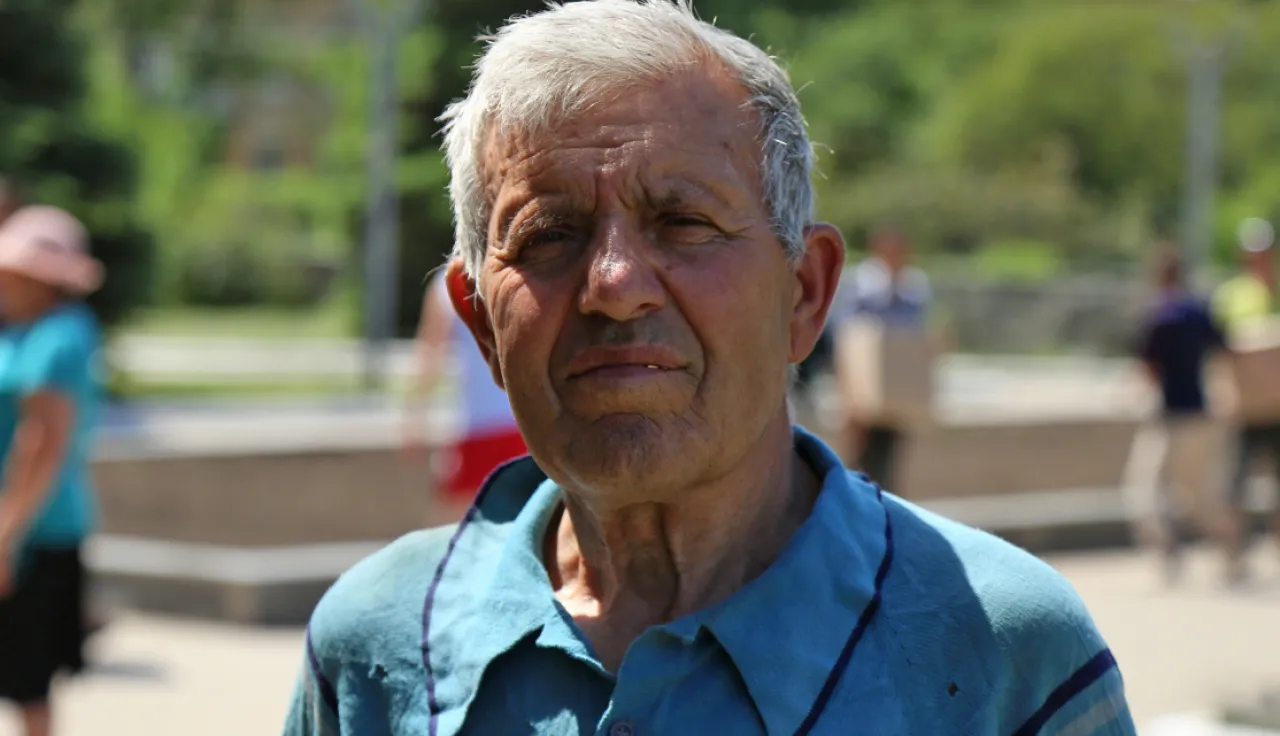
Ilovaysk suffered heavy fighting in August and September 2014. Many people died, and civilians spent long periods cowering in bomb shelters and basements. The fighting may have stopped, but the people of Ilovaysk are still struggling to rebuild their homes and resume normal life.
The weather in Ilovaysk is beautiful. The sun's rays warm the backs of the men sweeping the street in front of their homes. As you pass, you pick up the scent of peonies – a welcome contrast to the greyness of eastern Ukraine's multi-storey buildings. Children are having fun in the playground, playing on the red and blue swing. Pensioner Aleksander Nikolaevich is leaning on the edge of his balcony watching life in the city where he has lived for 37 years, chatting with his neighbour.
But Aleksander finds it hard to really enjoy this peaceful scene. The legacy of the fighting in August and September 2014 is everywhere. Ilovaysk was the scene of the bloodiest battles of 2014, which claimed the lives of many civilians and fighters. Looking up, you can see a burned-out flat above the men who are tidying up their garden. There are traces of mortar explosions on the pavement next to the playground where a mother and a daughter are playing. The balcony is covered with plastic sheeting after a shell hit his apartment. "I was in the bedroom when the shell came into the kitchen," he explains, showing where shrapnel has damaged the walls.
His wife, Nina Ivanovna, has lived in Ilovaysk all her life. She tells us that people hid in basements during last year's fighting. "It's beyond words when you can't even come out to go to the toilet. You'd have to have been there to really understand," says Nina, overcome with emotion at she stares at the damaged wall.

Ilovaysk, Ukraine. ICRC staff offload emergency aid. CC BY-NC-ND / ICRC/ Y. Orlov
The ICRC has come to Ilovaysk to help people whose houses were destroyed in the conflict. We heard similar stories from people standing in front of the House of Culture where aid supplies were being offloaded. The building is an impressive place, built for concerts and plays – not humanitarian emergencies.
Everyone in the town has their own unique story, but all their accounts have much in common. During the 2014 fighting, 252 people lived in an overcrowded bomb shelter and the basement of the House of Culture. The images of terrified people and the smell of stale air will probably remain with Ludmila Nikolayevna forever. She is the only person still living in the House of Culture, as the others have finally moved elsewhere. A shell destroyed her house, and she has no choice but to live in the building where she works as a director.
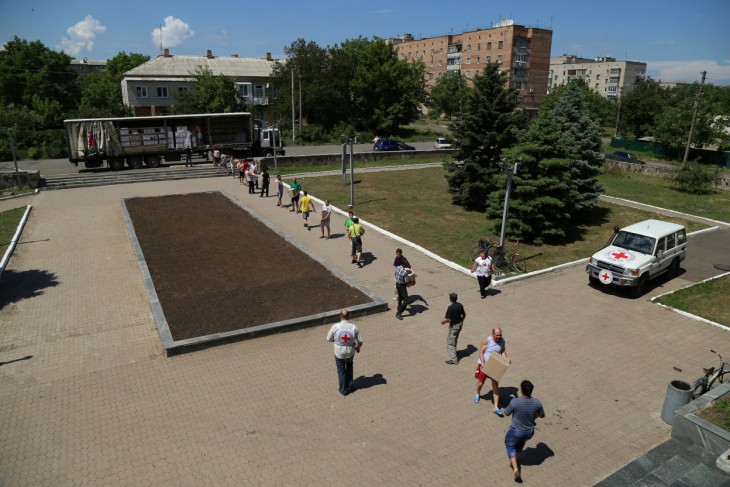
Ilovaysk, Ukraine. ICRC staff and volunteers form a human chain to unload relief supplies. CC BY-NC-ND / ICRC/ Y. Orlov
The conflict is having other consequences. There is a shortage of basic goods and there are problems with the rebuilding of homes. "We can only rely on ourselves," says Nina. "We're surviving, thanks to our daughter who lives and works in Khartsyzk with three of her children. But we can't repair our flat."
Aleksander Nikolaevich worked as a builder on the railways for 22 years. Now he is retired and has neither the money nor the physical strength to put things right.
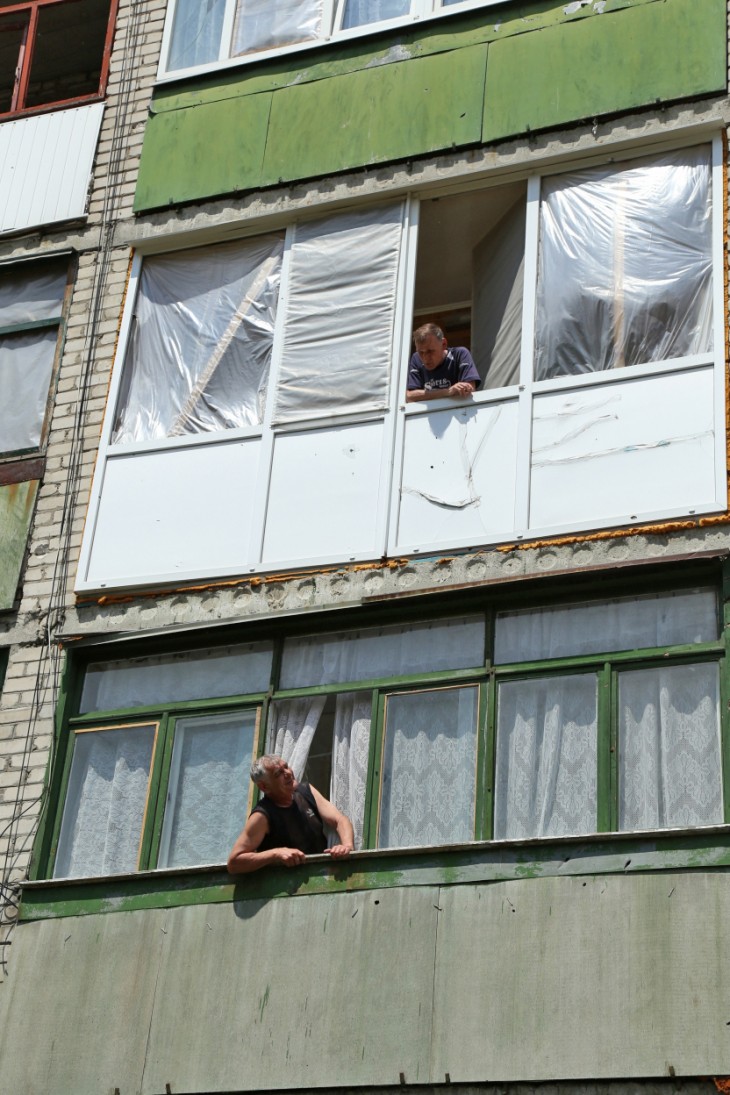
Ilovaysk, Ukraine. Aleksander Nikolayevich's balcony is still covered in plastic sheeting after a shell smashed into his kitchen. CC BY-NC-ND / ICRC/ Y. Orlov
Despite all the difficulties in Ilovaysk, people continue to live their lives. Humanitarian organizations and volunteers provide food and hygiene items and the ICRC has helped the town rebuild a kindergarten. But no humanitarian activity can solve everyone's problems without community engagement.
One of the people watching the volunteers unloading the aid is 77-year-old Ivan Trofimovich. He has come to support the younger generation. He also has a story to tell.
From August to September 2014, he hid from the shelling everywhere – even in the sewer. "I don't know how I survived," he says. The conflict destroyed his house, but he has not given up. He is helping a family that has people with disabilities living on the ground floor of a partially destroyed house, and bails out the water that threatens to flood them whenever it rains.
It has been more than eight months since the last shell fell on Ilovaysk. The city has disappeared from the front pages, as media attention has shifted to other cities and other events. The humanitarian situation is gradually improving, but so much remains to be done to bring Ilovaysk back to normality. And to put a smile on Aleksander Nikolaevich's face as he stands on his balcony.

